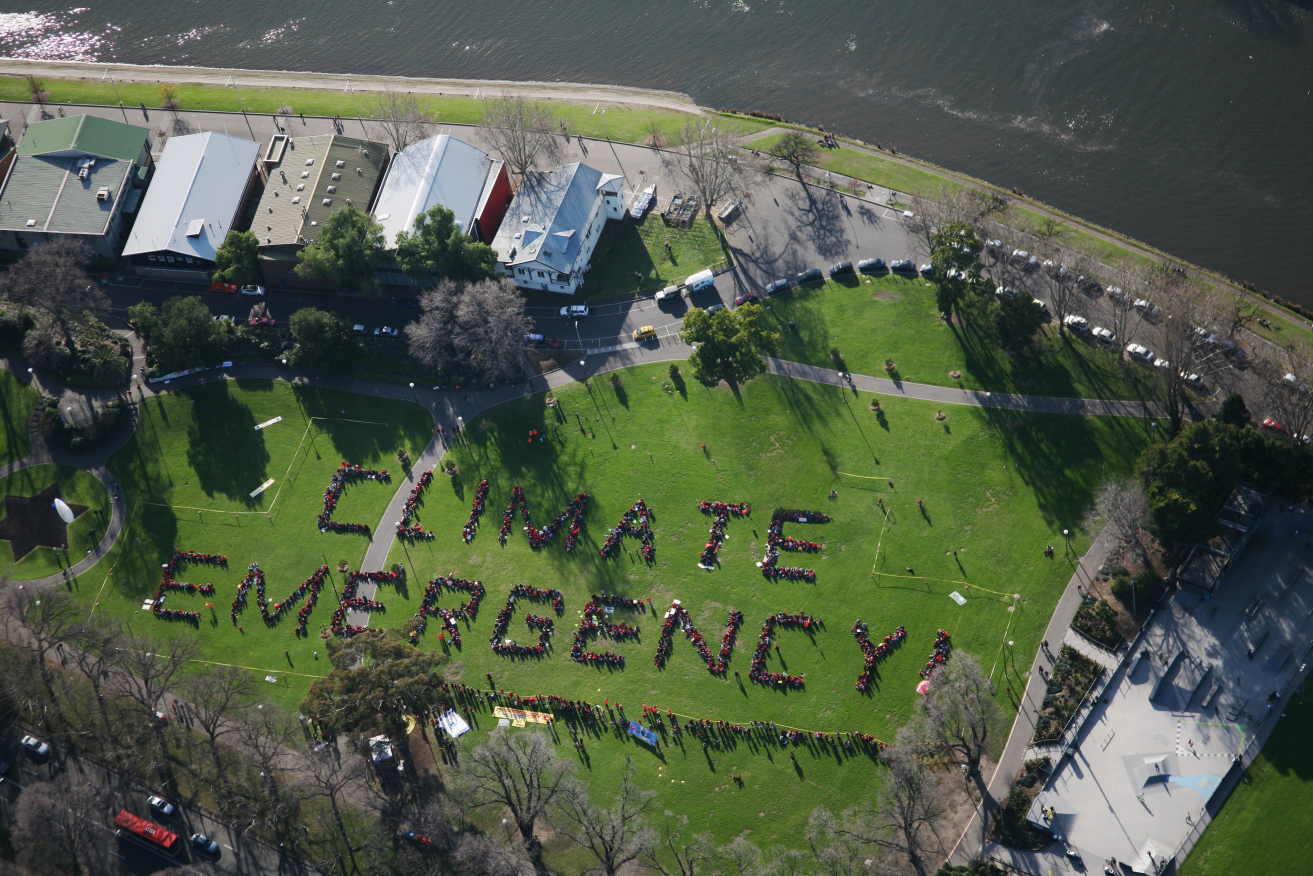SA councillors call for a “climate emergency”
Adelaide, Marion and Adelaide Hills councils will on Tuesday night vote to declare a “climate emergency” in their local government areas as part of a global push for action on climate change.

Photo: Les Johnson
The call comes after Adelaide experienced it’s hottest day on record in January – reaching 46.6 degrees during an extreme heatwave across the state.
Adelaide City councillor Robert Simms told InDaily he would move a motion at Tuesday night’s meeting calling for the council to recognise that Adelaide is “facing a climate emergency that represents a serious threat to our wellbeing, economy, built infrastructure, services, water supplies, environment and reputation as a liveable city”.
His motion calls on the council’s administration to investigate how it could improve water resilience and ensure an equitable distribution of trees across the city as part of its budget consideration process.
Simms also requested that Lord Mayor Sandy Verschoor lobby the State Government to decarbonise the city’s free connector bus and to electrify its passenger vehicle fleet.
“I think it’s (climate change) really the water cooler conversation for everybody in Adelaide at the moment,” Simms said.
“If Adelaide were to pass this motion we’d be the first capital city in the country to recognise a climate emergency.”
Simms said the motion aligned with a global campaign – called Climate Emergency Declaration – that lobbies local governments across the world to declare “climate emergencies”.
There are currently 12 councils across Australia that have signed up to the movement – including Gawler Town Council, which pledged support in January this year.
City of Marion councillor Bruce Hull told InDaily he would move on Tuesday night for his council to recognise a climate emergency “that requires urgent action from all Australian Cities”.
His motion also requests that Marion Council establishes two climate plans – one that aims to reduce carbon emissions in the council area “as quickly as possible” and another to “draw down carbon from the earth’s atmosphere”.
“I’m a Country Fire Service volunteer and I did go to Tasmania for a week and witnessed their landscape burning in a way it’s never burnt before, at least since white settlement and way beyond,” he said.
“My colleagues went to far-north Queensland in rainforest that has never burnt before.
“Our council is gearing up for sea level rise down at Hallett Cove and we’re also realising that our suburbs are getting hotter and we’re trying to mitigate that.
“I’m hoping that my council will face up to this and recognise that there is a time-critical crisis that’s before us and that we need to act accordingly.”
Adelaide Hills Council deputy mayor Nathan Daniells will present a similar motion calling for recognition of a “climate emergency” and the finalisation of a carbon management plan that stipulates a transition to 100 per cent renewable energy.
“I haven’t put a defined date on that yet, it’s something that as a council we can work towards later,” he said.
“It can be achieved through increasing the number of solar panels and increasing offsets, which will ultimately save the rate payers more.”
Daniells said the terminology “climate emergency” was appropriate, particularly given the recent spate of record-breaking heat in South Australia.
“The science is clear that the environment is changing,” he said.
“We may be a small council of only 40,000 people in a world of billions, but I believe local government does have a role to play in contributing to action on climate change.”
According to latest figures from the state’s Environment Protection Authority, the number of days reaching over 40 degrees in Adelaide has more than doubled in the past 10 years, with the Bureau of Meteorology forecasting maximum daily temperatures for South Australia will rise by between 1 and 2.1 degrees by 2050.
Sea levels are also predicted to rise in South Australia by about one metre by 2100.
Want to comment?
Send us an email, making it clear which story you’re commenting on and including your full name (required for publication) and phone number (only for verification purposes). Please put “Reader views” in the subject.
We’ll publish the best comments in a regular “Reader Views” post. Your comments can be brief, or we can accept up to 350 words, or thereabouts.
InDaily has changed the way we receive comments. Go here for an explanation.




